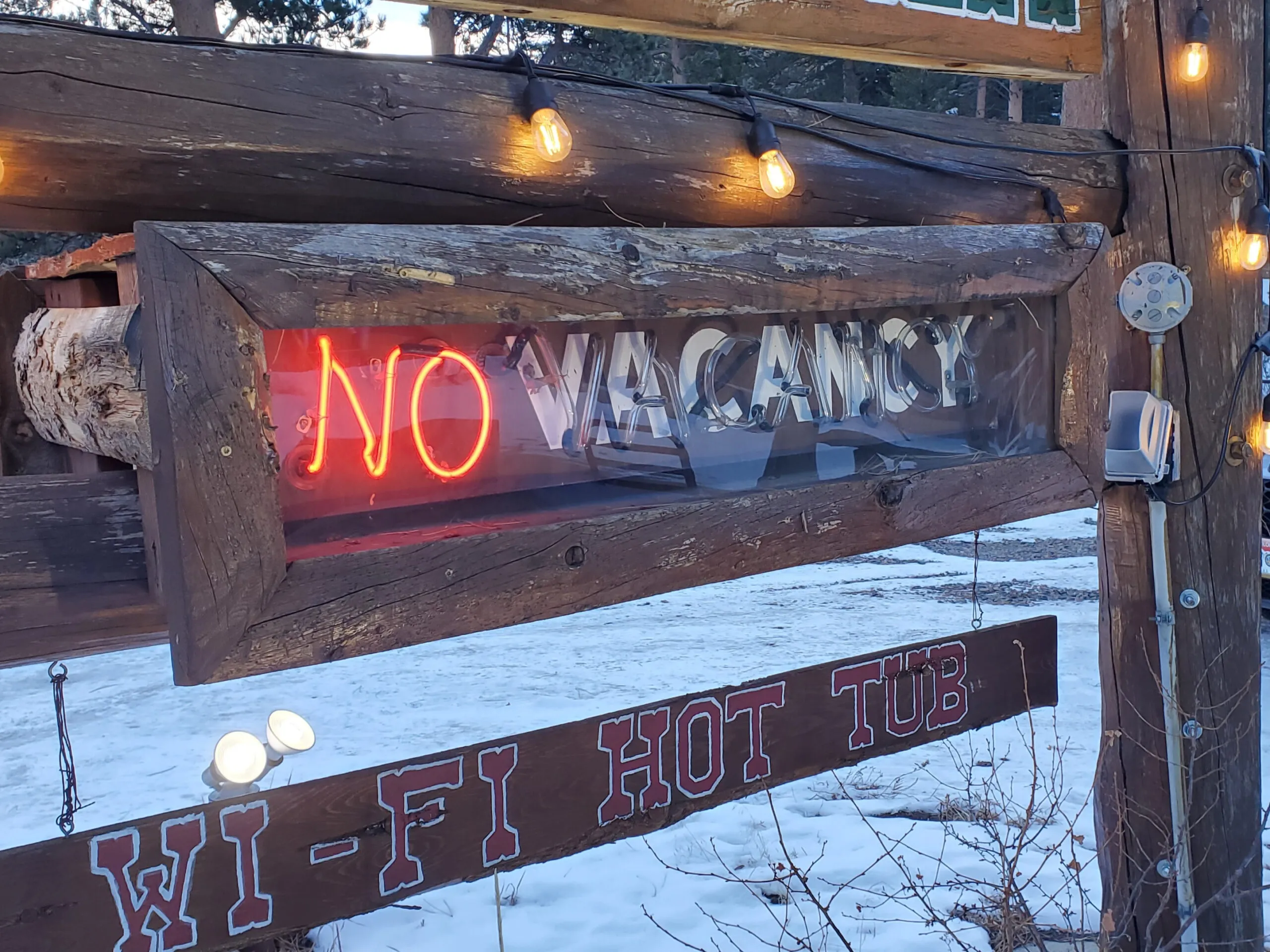State steps up in attempt to save Stanley Hotel sale

ESTES PARK — A Colorado state agency plans to buy the Stanley Hotel after a previous deal to sell the iconic lodge that inspired Stephen King’s “The Shining” novel to an Arizona nonprofit group failed to cross the finish line.
The Colorado Educational and Cultural Facilities Authority, as first reported Friday by the Colorado Sun, expects to issue millions of dollars in bonds to finance the deal, the completion of which is a key step toward completing a series of expansion and improvement projects such as a film center that celebrates the 116-year-old, 140-room hotel’s role in horror-cinema history.
Arizona-based Community Finance Corp., a nonprofit group that specializes in forming public-private partnerships that provide alternatives to the traditional funding schemes governments often use to pay for capital improvements and infrastructure projects, was previously in line to buy the Stanley — through a fairly complex financing mechanism — from long-time owner Grand Heritage Hotel Group by way of a $475 million bond issuance from CECFA.
SPONSORED CONTENT
Under the framework of the new deal, CFC, which was set to serve as essentially a middleman in the transaction, is removed from the equation. The state “views this change as a simplification that enhances the role of Colorado-based entities,” a spokesperson for the Colorado Office of Economic Development and International Trade told BizWest in an email.
It’s unclear why the previous iteration of the hotel-acquisition plan, which had been reviewed by several state regulatory boards in late 2023 and early 2024, wasn’t completed. Community Finance Corp. did not respond to requests for comment on Friday.
If the Colorado Educational and Cultural Facilities Authority’s new plan comes to fruition, the state will own the Stanley upon repayment of the bonds — still expected to total more than $400 million — and revenues from the property will flow back into the coffers at CECFA, which, according to its website, “is the official state issuer of tax-exempt bonds for capital projects furthering the missions of educational and cultural organizations.”
State officials and Grand Heritage Hotel Group owner John Cullen, whose company is expected to continue operating the hotel upon the state’s acquisition, have said repeatedly in recent months that a sale of the Stanley is necessary to fund important improvements such as the completion of The Stanley Film Center, which, according to its website “will be the permanent home for film, fun and the horror genre” and will highlight the key role that Stanley Kubrick’s “The Shining” film adaption has played in horror history.
The $70 million dollar effort began in 2015 with a jumpstart in the form of millions of dollars in state tourism tax incentives. Development of the museum and interactive film center, which has received several more public financing boosts over the years, has been hampered by construction delays, cost increases and the COVID-19 pandemic, which essentially shut down the hospitality industry for several months in 2020.
Once complete, the Stanley Film Center will be “a two-story building with approximately 64,735 square feet, to include an approximately 864-seat outdoor amphitheater with a fire capacity of 1,200 (including standing room-only), an event center, a film museum, a sound stage, and related amenities, to be constructed adjacent to the main hotel building and connected to the concert hall,” according to a state documents.
Blumhouse Productions LLC, the juggernaut production company behind horror films and franchises such as Get Out, Five Nights at Freddy’s, The Purge and Paranormal Activity, will serve as the film center’s exclusive exhibit curator.
“CECFA is already a strong partner in the proposed financing of the Stanley Film Center. The vision for the property, including an exciting new partnership with Blumhouse, has incredible potential to attract new, out-of-state visitors to Estes Park and Colorado, and strengthen CECFA’s ability to support educational and cultural facilities across the state,” CECFA executive director Mark Heller told BizWest in an emailed statement.
Improvements at the hotel will boost Colorado’s profile within entertainment industry circles, state and Stanley officials have said, and hopefully draw more events such as the Sundance Institute’s Directors Lab, which is coming to the Stanley this year, marking the first time a venue other than the Sundance Resort in Utah has hosted the lab.
“We are excited to see the Stanley Hotel and Estes Park welcome the Sundance Institute’s world-class Directors Lab this May, showcasing the many resources our state offers the film industry,” Heller said.
In order for the parties to shout a final “That’s a wrap!” on the acquisition deal, CECFA must navigate several crucial procedural steps.
“The Stanley Film Center is a Regional Tourism Act project, which qualifies the property for $46,399,582 in state sales tax increment financing over 30 years. To facilitate this proposed financing structure and ensure continuing funding, the new ownership plan for the Stanley Film Center will be submitted to the Colorado Economic Development Commission for review and approval at its April 18 meeting,” Heller said. The EDC gave its blessing to the previous version of the hotel-sale plan several months ago.
The CECFA must also get approval from Colorado lawmakers, who will adjourn the 2024 Legislative session next month, to expand its operational mandate to include certain new functions it would take on as the owner of the Stanley.
“By expanding CECFA’s permitted operational activities, the proposed legislation will enable the organization to engage in a wider range of community revitalization projects,” Heller said. “That’s a win for the Colorado communities that will benefit from its important work.”
A Colorado state agency plans to buy the Stanley Hotel after a previous deal to sell the iconic lodge that inspired Stephen King’s “The Shining” novel to an Arizona nonprofit group failed to cross the finish line.




